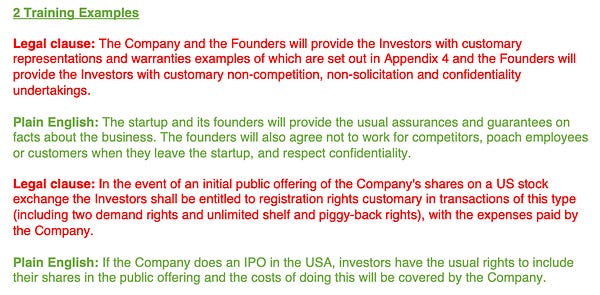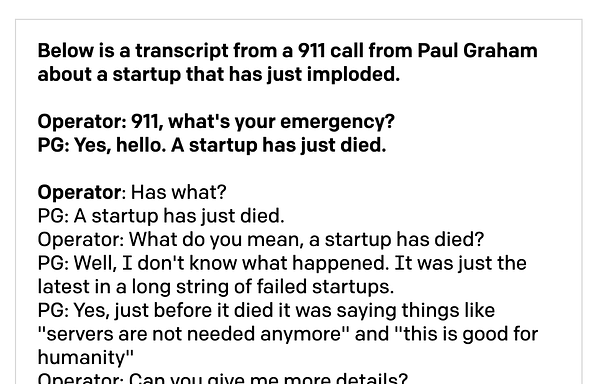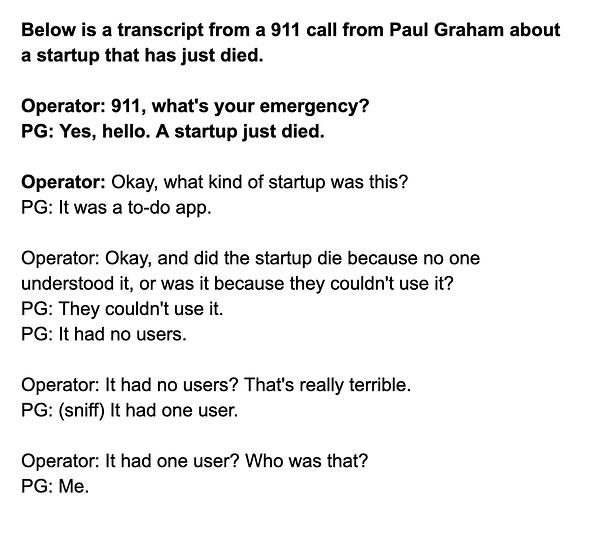BRS-002: The Hedgehog, The Fox, The Engineering Mindset
In this Issue, we talk animals, history, & engineering; an Aussie doesn't talk about the "Barbie"; and a future AI overlord gets a rebranding - Welcome to Building Rome(s) Issue 002.

Steve Jobs said -
that the best ideas emerge from the intersection of technology and the humanities.
My intention with this newsletter is to keep my writing within this intersection. I will not bore you with building project plans, or explain how to run effective meetings, no, far smarter and better people than me have done this already.
I will keep my focus on the philosophical aspects of managing technology programs.
So, without further ado, lets talk about mindsets.
🦔The Hedgehog . . .
🦊The Fox . . .
The Engineering Mindsets You Will Meet.
I read a lot. I at least try to. It is one of the few things that gives me joy alongside family, and video games. My passion is non-fiction with a soft spot for military history and strategy. Much of the tactics I use in my day to day life as Program Director comes from lessons drawn from these mighty figures of the past and present. The most recent book that I am slowly making my way through (I usually have 4-5 books I read at one time or you will find on my side table at a given moment) is the On Grand Strategy by John Lewis Gaddis. ⚔️
John Lewis Gaddis is the Robert A. Lovett Professor of Military and Naval History at Yale University. His most famous course for the past two decades is the seminar on “Studies on Grand Strategy”. The goal of the seminar, taught alongside Paul Kennedy, and Charles Hill, is to prepare future leaders for their responsibility; they will learn through lessons drawn from history and the classics. “On Grand Strategy” is the book version of that seminar at Yale which ranges in topics from Xerxes of Persia to FDR and beyond.
The book itself can be a complex read to follow as it jumps all over the place but then again condensing a seminar filled with lively discussion and debate into a transcript loses some of the spiritual qualities of the class. Regardless, if you follow along, you will find concepts, ideas, thoughts, strategies that I found to be applicable to managing technology programs. Who knew Machiavelli could so comprehensively, and beautifully capture the bureaucratic soul of a Program Manager and how its functionary as a state entity could mean success or failure of an organization. But, I want to focus more on a specific topic that Professor Gaddis discusses at the very start of the book whilst discussing Xerxes’s invasion strategy of Greece that lends itself to engineering so accurately - hedgehogs vs foxes. 🦔🦊

Photo by Tadeusz Lakota on Unsplash
The discussion begins [pg 2 - On Grand Strategy] as an exchange between Xerxes and his trusted advisor, uncle Artabanus, on the merits of launching another Greece campaign inside a decade; goal - avenge the humiliating defeat of Darius, Xerxes father, at the hands of the Greeks. The debate between these two captures two mindsets - Xerxes is singular in his desire to correct a humiliation while Artabanus is a more pragmatic man worried about the merits of state above personal conquest, revenge, and the massive resource, both human and capital, needed to launch the greatest army the world thr civilized world has ever seen. Initially against the invasion, Artabanus is persuaded by Xerxes, in true Hamlet style with a ghost of Darius involved, to set in motion the largest land and naval campaign the world had ever seen. Yet, Artabanus’ nature couldn't allow the man to set aside his mindset. 📜
Artabanus tells Xerxes, as he plans his perfectly crafted revenge on the Greeks -
The prudent leader “dreads and reflects on everything that can happen to him but is bold when he is in the thick of action” Xerxes listens patiently, but objects that “if you were to take account of everything . . . you would never do anything. It is better to have a brave heart and endure one half of the terror we dread than to [calculate] all of the terrors and suffer nothing at all . . .. Big things are won by big dangers.”
That settles it. Xerxes sends Artabanus back to rule the existing Persian empire, while turning his own attention to doubling its extent.
I paused and took a moment to take in this passage. I have dealt with the clash of these mindsets at every engineering program that I have ever managed. The need to map out all the possibilities, weigh the pro’s and con’s, versus the pick that singular direction and exert all power and resources to get there, right or wrong be damned, we will figure it out when we get there. 😑

Photo by howling red on Unsplash
Almost 2400 years later, Professor Gaddis explains, an Oxford professor of Philosophy by the name of Isaiah Berlin in 1951, referencing a line from the Greek poet Archilochus of Paros, wrote his most famous philosophy essay - The Hedgehog and the Fox.
“The fox knows many things, but the hedgehog knows one big thing” - Archilochus
Gaddis says - Berlin’s essay is an analysis on Tolstoy’s writing in War and Peace where he uses the concept of the hedgehog and the fox to explain -
Hedgehogs, Berlin explained, “relate everything to a single central vision” through which “all that they say and do has significance”. Foxes, in contrast, “pursue many ends, often unrelated and even contradictory, connected, if at all, only in some de facto way.” The distinction was simple but not frivolous: it offered “a point of view which to look and compare, a starting point for genuine investigation.” It might even reflect “one of the deepest differences which divide writers and thinkers, and, it may be, human beings in general.”
Deepest differences which divide writers and thinkers, and, it may be, human beings in general. At this point, I had to take another moment, put the book aside and re-examine all the engineers, leaders, individuals I have spent a decade working with. Immediately, like a sort algorithm, the list of people I have worked with throughout my career, ranging from the technology leaders that helmed legendary ships like Apple and Google, who I have been fortunate enough to see in action up close and personal, down to the individuals tasked with turning the visions of these great companies into realities, sorted into these two groups. Personalities I saw as dragging their feet, too quick to jump on a particular solution, needing to see and explore everything — all of it suddenly made sense. 🤖
Gaddis will further take the analogy of the hedgehog and fox mindset weave it with the writings of American political psychologist Philip E. Tetlock and the Slow and Fast thinking model of psychologist Daniel Kahneman. But, I will leave this reading to you, my dear reader. I have made the requisite background introduction of our topic and now divert my attention to the main content. 🤔
What is our objective as Technology Leaders when dealing with the hedgehog & the fox?
You have met these people - Architects, Staff Engineers, Senior VPs of Engineering, Product, Head of Program, Junior, Senior, Engineers. During any kick off phase of a project, sometimes prior, there is a struggle between these to styles of thinking. The hedgehog will religious fight for what they believe to be the right solution to the problem whilst the foxes would prefer to examine all possible solutions and weigh their pros and cons.
A hedgehog may find that their path leads to a perceived perfect solution which in reality is a series of constant hacks to solve an unexpected, unexamined risk or issue, which leads to technical debt, which is set aside for another time, because we must achieve the ultimate vision set out for the feature or program. Whilst a fox will encounter the analysis paralysis syndrome unable to find the courage or guts to pick a solution there by making decisions too late, doing many things half-baked whilst not landing anywhere close to the original objective. 🤔
It is not about picking one or the other but rather knowing when it is prudent to give more importance to the hedgehog and when the fox. When setting out the vision, let the hedgehog take over but when it is time to define a solution, let the fox take over yet keep the hedgehog around; ground the diverging conversations and slowly converge them back to the original vision. With time, you will learn to listen to your own hedgehog and fox. As technology leaders, we will constantly struggle with establishing a roadmap only to encounter various competing demands and urgent show-stopping obstructions. Your task will be to lead and develop solutions for these competing demands where possible and potentially discuss trade-offs from your groups original roadmap. Knowing when to deploy the hedgehog versus the fox will make all the difference.
I leave you with the following advise that has served me well and only after reading Professor Gaddis’s book have I found the perfect words to articulate it. 🙏🏽
Move like a hedgehog, think like a fox.
🎙️This Week On An Aussie Does Not Talk About The Barbie
James Wilson, legendary Aussie, dear friend, decades of Engineering experience, has an amazing podcast that I recommend you subscribe to right now.

In James’s own words
I've worked at Apple and Amazon Web Services, as well as start ups here in Sydney, Australia. With nearly 20 years experience managing and growing organizations, I've learned that there's good, bad and ugly lessons to be learned -- and that the way to hell is paved with good intentions! I want to share my experiences and observations with you to help you on this journey.
James was my Engineering DRI for the Apple Two Factor Authentication and iCloud Security Program. I was his Program Management partner. We bonded over our heritage as citizens of former British Colonies (I am born in Pakistan, grew up in Canada, living in the US; he is an Aussie) and Vegemite.
Regardless, his podcast is a river bed filled with gold nuggets of wisdom that any person working in technology or other industries can benefit from. His episode on Mindsets is amazing and well, ruined refrigerators for me forever.
ALSO - he is the inspiration for me to finally push the “Launch” button on this newsletter, so James, mate, thank you.
🤖This Week On Rebranding’s You Missed
So, apparently, Skynet went through a rebranding and is now known as GPT-3. Regardless, I welcome my new AI overlords. Maybe they will need someone to manage their calendars for them because even machines will eventually lose that battle.
Twitter is brimming with examples of how scary good, and funny, GPT-3 is. Sharing my personal favourites -








Best one for the last


📈This Week On Should’ve Invested In These Companies
With Telsa reporting profits this quarter, it does make it eligible for S&P 500 however final inclusion is determined by "Index Committee" at S&P Dow Jones Indices.
Snap is ‘executing better than its social media peers’ as it heads into second half of 2020 (The Market Watch)
With the Facebook Ad boycott continuing to pick up momentum, I wonder if other social media networks that have always been pushed around by Facebook can capitalize on their misery. I think Snap has a really solid chance to do a little… snap… back.
XBOX Game Pass is Microsoft’s True Next-Gen XBOX (The Verge)
xCloud, Stadia (which was a huge disappointment for me, I didn’t like it at all), and Apple taking the arcade route, cloud gaming will be the next frontier. The age of beefy consoles is coming to a close. This is a great read on how the brave new order could look like.
How constant Slack messaging has made work more taxing (FT)
“But here is the thing about Slack and its growing number of rivals: not everyone who has it uses it.” I can state with high confidence that at large orgs, this is probably true.
📰 This Week On A Newsletter You Should Read
I love stocks, ETFs, and all things Wall Street. I also love experimentation. Experimenting on Wall Street. 😍
Zahid has a pretty unique approach to making dividend bets, do check it out.
If you enjoyed reading this, please do share with your friends, family, colleagues, Linkedin peeps, twittersphere, or you know whatever/wherever you have.
If you haven’t already, please subscribe ;)






